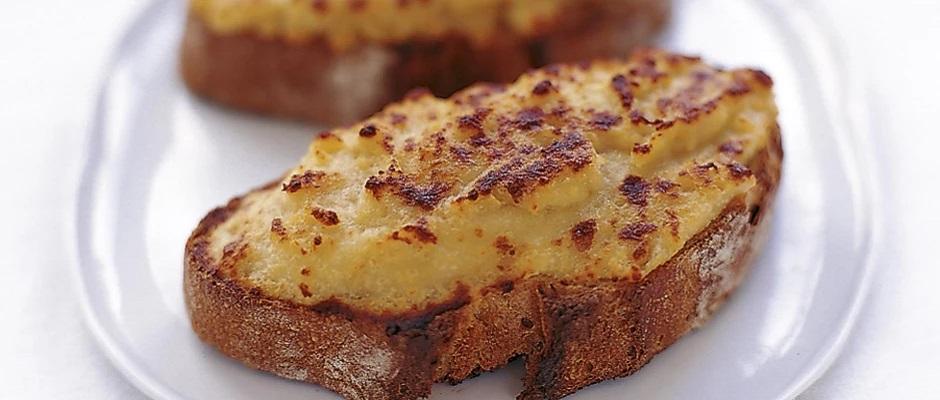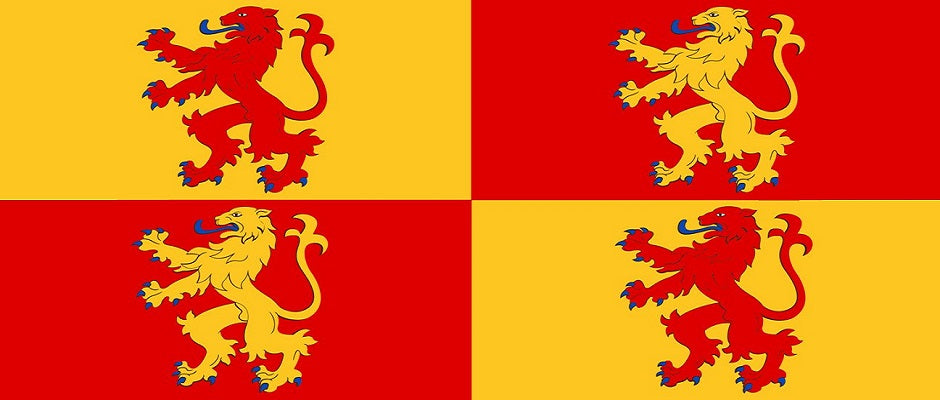Celebration Days in Wales
Special Days in the Calendar for Wales
Wales is a distinctive part of the UK, a country with its own character, culture and way of life – thousands of years in the making, and continually evolving. The history of Wales contains many important or special days or festivals that are still celebrated in modern times and are separate from those in England and Scotland. Whilst not trying to be a comprehensive list, here are a number of important days to all Welsh people, here in Wales and around the world...
13th January, Hen Galan, New Year's Celebrations
In the Cwm Gwaun valley near Abergwaun (Fishguard), the local people prepare for their annual New Year celebrations on the 13th of January. Yes, this is not a misprint, 13th of January each year, known as Hen Galan!
The reason... they are following the old Julian Calendar. The Julian calendar was abolished controversially in 1752 and replaced with the Gregorian calendar, which was approved by Pope Gregory XIII nearly 200 years earlier. But the people of the Gwaun Valley resisted the change. In true Welsh tradition, the children go from door to door singing and are given ‘Calennig’ in return: sweets or money.
16th January - Appreciate a Dragon Day
There's only one Dragon worth appreciating and that, of course is the Welsh Dragon.
The Welsh Dragon is the heraldic symbol of Wales, and is, almost without doubt the country’s most recognisable symbol. The image is most notably seen on the flag of Wales. The flag, a proud and ancient battle standard of the Welsh consists of a red dragon, passant (which in heraldry terms indicates that the animal has its right foot raised), on a green and white background. The Welsh dragon this symbol is also extensively used by various institutions in the country, both public and private. The Welsh Dragon traces its history as a national symbol all the way back to the 9th century, though it is popularly believed that the symbol was already used by the ancient Celts before the invasion of Britain by the Saxons.
25th January, - Saint Dwynwen's Day. Say I love you in Welsh - Rwy'n dy garu di to your loved one!
Saint Dwynwen's day (Wales' own Valentine's Day) is celebrated on 25th January in Wales (3 weeks before the more well-known Valentine's Day on 14th February) with the giving and receiving of cards and presents.
All good patriotic Welshmen and women should be celebrating Saint Dwynwen's day. Saint Dwynwen is the Welsh patron saint of lovers, and she is the Welsh version of St Valentine. The popularity of Saint Dwynwen's Day has increased massively in recent years so why wait until St Valentine's Day to make your romantic feelings known, when you can wish your loved one 'Rwy’n dy garu di ' (I love you) three weeks earlier? You can show your proud Welsh heritage and point of difference by celebrating Saint Dwynwen's Day as opposed to Valentine's Day!!! Why not buy your loved one a Gift Card to celebrate this occasion, Gift Cards.
22nd February, France Invades Britain
If asked when the last invasion of Britain was, many people in Britain will remember 1066 when the Normans successfully invaded of England. But that is simply not true… The last invasion of Britain was in west Wales near to the town of Fishguard on February 22nd, 1797.
After landing, the 1,500 men French army marched inland. The local British army was heavily outnumbered, but reinforcements were gathering at Fishguard in what is now called the Royal Oak Inn. The invasion started and finished within 2 days. A local heroine, Jemima Nicholas, is said to have captured soldiers single-handedly and secured them in St Mary’s Church with nothing more than a pitchfork. On 24th February, the French surrendered in the Royal Oak pub in Fishguard, and this is noted on a plaque above the front door.
1st March - St David's Day
St David's Day is the feast day of Saint David and falls on 1 March, the date of Saint David's death in 589 AD. The feast has been regularly celebrated since the canonisation of David in the 12th century (by Pope Callistus II), though it is not a national holiday in the UK.
Traditional festivities include the wearing daffodils and leeks, recognised symbols of Wales and Saint David respectively and grand parades in major towns and cities in Wales.
14th April - National Laverbread Day
To commemorate this famous Welsh dish, the first Laverbread Day was celebrated on 14th April 2022.
Laverbread or 'Bara Lawr' in Welsh, is a traditional Welsh delicacy made from edible seaweed known as laver. Laver is collected by hand from the Welsh coastline and has a unique texture and salty flavour which provides a taste of the fresh, Welsh sea. Despite its name, laverbread is not bread but rather a type of paste or puree. It has been a staple food in Welsh cuisine for centuries and holds cultural significance in Wales.
Today, Laverbread is a Welsh delicacy, famously being described by Richard Burton as ‘Welshman’s caviar’. It is often served fried as part of a traditional Welsh breakfast with cockles and bacon.
1st May - Calan Mai - May Day
May Day (Calan Mai) itself used to be known as Calan Hâf, the first day of summer. At the opposite end of the season, the first of November was known as Calan Gaeaf. These two festivals divided the year into winter and summer and became the dates on which certain activities began or ended. The flowering of the Hawthorn tree symbolises the change from Spring to Summer.
As dawn broke on May Day, people in villages and surrounding farms would be woken by the singing of May carols. These songs were known as carolau Mai, carolau hâf, (summer carols) or as canu hâf, (summer singing). Summer dancing, and the singing of bawdy ‘Summer carols’ were popular, as lively groups meandered from house to house, accompanied by a fiddler or a harpist.
13th May - Rebecca Riots Remembered
The Rebecca Riots were a series of protests against conditions in the rural Wales, mainly Ceredigion, Carmarthenshire and Pembrokeshire, between 1839 and 1843. They are usually seen as attacks on toll gates on the roads of Wales. But many 'Rebecca' incidents were about general economic conditions in the countryside and not about tolls at all.
The people finally decided enough was enough and took the law into their own hands; gangs were formed to destroy the tollgates. These gangs became known as ‘Rebecca and her daughters’. It is believed that they took their name from a passage in the Bible, Genesis XXIV, verse 60 – ‘And they blessed Rebekah and said unto her, Let thy seed possess the gate of those which hate them’. Usually at night, men dressed as women with blackened faces attacked the hated tollgates and destroyed them.
Today every August Bank Holiday, a Ras Beca (Rebecca Race) race is held near Ffynnon Groes in north Pembrokeshire. First run in 1977, the race is a five-mile course across the Preseli Mountains. The winner is given an axe and he/she smash a gate to commemorate the Rebecca Riots.
14th May - International Dylan Thomas Day
Dylan Thomas Day is an international day to celebrate the life and work of one of Wales' most famous writers and poets, Dylan Thomas. It is held each year on 14th May, the date Under Milk Wood was first read on stage at 92Y The Poetry Center, New York in 1953.
Born on 27th October 1914, in Swansea, South Wales, Dylan was a Welsh poet and writer whose works include the poems
- Do not go gentle into that good night
- And death shall have no dominion
- Under Milk Wood
Dylan became exceptionally popular during his lifetime, and this continued after his premature death at the age of 39 in New York City.
28th May - Wales and Patagonia
On 28th May 1865, the ship named the Mimosa set sail from Liverpool to Patagonia with an estimated 153 passengers on board. These brave souls had a dream of a new Wales in Patagonia, free from the overwhelming influence of the English language on Wales. Three months later, they arrived in Patagonia on 27th July 1865, and they named the landing site, Porth Madryn.
27th July - Wales and Patagonia
On 27th July 1865, the first inhabitants of the new Wales colony, Y Wladfa, went ashore at Porth Madryn - Wales in Patagonia.
First Week of August - Eisteddfod Genedlaethol
The National Eisteddfod of Wales is held each year during the first week of August and is a unique celebration of Welsh arts, language and culture. It does not have permanent location, it is held alternatively in North and South Wales. It the largest and oldest celebration of Welsh culture, and there is little comparable to it in the UK or Europe.

August Bank Holiday Weekend - World Bog Snorkelling Championship
The annual World Bog Snorkelling Championships - an event that Lonely Planet described as one of the top 50 "must do" things from around the world. It is held in o the August Bank Holiday weekend in Llanwrtyd Wells. It is a genuine worldwide event with, in recent years having over 150 competitors from countries that including Australia, Belgium, Denmark, Eire, Italy, the Netherlands, South Africa, Sweden and USA.
3rd September - National Welsh Rarebit Day
Welsh rabbit (original spelling) or Welsh rarebit is a traditional but famous Welsh dish. Basically, it’s combination of hot melted cheese on toast which is a winning combination on any day. The first and most important thing to understand is that rarebit is not a word that is used in any other context. It only exists next to the word Welsh when referring to the dish Welsh rarebit.

There’s no rarebitting involved in making Welsh rarebit, no rarebits are harmed during the cooking process, and you don’t serve it on a rarebit, Welsh or otherwise. Some still call it posh Cheese on Toast which let’s face it, doesn’t sound half as good as Welsh Rarebit, does it?
16th September - Owain Glyndŵr Day
Owain Glyndŵr, who was proclaimed Prince of Wales on 16th September 1400 after rebelling against English rule, is a key figure in Welsh history and was the last Welsh-born Prince of Wales.
To mark September 16th, a series of festivals and events are held across the country to celebrate the Welsh national hero. The Owain Glyndŵr Centre in Machynlleth is built on the site of the famous parliament held in 1404 at which Owain was crowned Prince of Wales. This Grade 1 listed building was given to the town of Machynlleth by Lord Davies of Llandinam in February 1912. The centre traces the history of Owain Glyndŵr from his early days to his death. There is a life-size bronze statue of Owain Glyndŵr on his horse which as was installed in the square at Corwen in 2007, across the road from the historic Owain Glyndŵr Hotel
31st October/1st November - Calan Gaeaf, Nos Galan Gaeaf
Calan Gaeaf is a traditional Welsh festival that marks the beginning of winter. Rooted in ancient Celtic traditions, Calan Gaeaf is celebrated on the eve of October 31st, coinciding with Halloween, and continues into November 1st. The festival holds significant historical and cultural importance in Wales, reflecting the Welsh people's deep connection to nature and the changing seasons.
November 1st is known today as All Saint’s Day, but within Celtic tradition, it was always celebrated as the first day of winter. The Church took this pagan tradition (as it did with many others) and made it a holy day. During the medieval period, Calan Gaeaf was a harvest festival. The night before, Nos Galan Gaeaf, was a moment when the veil between the human world and the world of the spirits was at its thinnest, an 'Ysbrydnos'. Nos Galan Gaeaf has become the modern-day Halloween.
11th December - Cilmeri Day
Cilmeri is a small village in Radnorshire, part of Powys in mid-Wales, with approximately 500 inhabitants. Despite being such a small village, Cilmeri is of great historical importance to Wales. It is a most hallowed and sad place, for it was there, in a quiet meadow just outside the town of Llanfair my Muallt (Builth Wells) that the last Welsh-born native Prince Llywelyn ap Gruffudd was killed in battle. Llywelyn died in a minor skirmish with King Edward of England's soldiers, on 11th December 1282.
In the quiet green meadow on the road from Llanfair ym Muallt (Builth Wells) to Llanymddyfri (Llandovery), beside the little brook, there is a tall granite monolith. At first glance, it looks like one of the ancient standing stones erected thousands of years ago by our Neolithic ancestors, yet a closer inspection reveals it to be a monument erected in 1956 to the memory of Prince Llywelyn, the last Welsh-born ruler of Wales. Since then, has served as the focal point for an annual day of remembrance on the anniversary of his death, the 11th of December each year.
He became to be known as Llywelyn Ein Lyw Olaf, or "Llywelyn our last ruler". Llywelyn ap Gruffudd is the last real Welsh born Prince of Wales; those who have come after him should not claim this title.
As more Welsh people understand the history of Cilmeri, the greater has been the remembrance on 11th December each year.
20th December 1955 - Cardiff becomes Wales Capital City
The capital city of Wales is Cardiff (Caerdydd in Welsh) but up to 1955, Wales did not have a capital city. Following a vote, Cardiff was chosen as the capital city of Wales on 20th December 1955. Since 1964 following the establishment of the Welsh Office, Cardiff has been home to government offices for Wales. Since 1999 it has hosted the National Parliament for Wales, known in Welsh as the Senedd, in Cardiff Bay. Many new iconic buildings are now based in Cardiff Bay and the new road connecting the city centre to the Bay is known as Lloyd George Avenue.

Famous landmarks in Cardiff include it's two castles, Cardiff Castle and Castell Goch, Llandaff Cathedral, museums including St Ffagans, the Wales Millennium Centre in Cardiff Bay and the Principality Stadium, home to the Welsh Rugby Union. Cardiff Bay is supplied by two rivers namely the rivers Taff and Ely (Tâf and Elai) that now form a 500-acre [2.0 km2] freshwater lake.
About FelinFach
Located in Pembrokeshire Wales, our ethos is defined in the three words...
NATURAL TRADITIONAL HANDMADE.
- Hand woven iconic Welsh blankets.
- Hand dyed yarn, dyed with natural dyes only - no exceptions!
- Hand poured candles, candle accessories and Candle Making Workshops.
- Natural Dyeing Craft courses.
- Yarn shop, yarn bowls, project bags, tools and accessories for knitters and crafters.
- Welsh Gifts, made in Wales, handmade in Wales.
We are a proud supporter of Americymru the Campaign for Wool, Global Welsh and Red Dragon America.
Other FelinFach Pages
Last updated 2nd April 2025



















